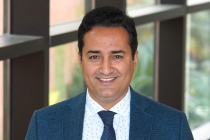SLA Invited Talk: Mostafa Papi (FSU)
Proactive Language Learning: Bridging Motivation and SLA
Abstract: Second language acquisition (SLA) theories have been predominantly concerned with the cognitive and psycholinguistic processes involved in second language (L2) learning. With a few exceptions, these theories have largely put the focus on understanding either the nature of the acquired L2 knowledge or the cognitive and psycholinguistic processes involved in L2 acquisition. In addition, research on individual differences in SLA has been obsessed with the learner’s mind, that is their cognitive abilities, motivations, and emotions. Learner behavior, on the other hand, has remained largely neglected and under-theorized. To bridge this gap, the present work proposes a proactive language learning theory, which outlines the agentic and strategic behaviors that learners employ in order to learn an additional language. These behaviors include input-seeking behavior, interaction-seeking behavior, information-seeking behavior, and feedback-seeking behavior. The proactive learning behaviors involve seeking, engaging with, and using opportunities for language learning through input, interaction, metalinguistic information, and feedback. Learners’ quality and quantity of proactive behaviors are hypothesized to lead to qualitative differences in their L2 knowledge and competence. In this presentation, the background and rationale that underpins the theoretical model are presented first. Next, the four components of the theory are introduced and hypotheses on their effects on L2 learning outcomes are formulated. Additionally, I will explore the possible contextual and individual antecedents of the proactive behaviors. Finally, I will discuss potential implications of this theory for L2 researchers, practitioners, and learners.
Suggested readings:
Papi, M., Eom, M., Zhang, Y., Zhou, Y., & Whiteside, Z. (2023). Motivational dispositions predict qualitative differences in oral task performance. Studies in Second Language Acquisition, 45(5), 1261-1286.
Papi, M., Wolff, D., Nakatsukasa, K., & Bellwoar, E. (2021). Motivational factors underlying learner preferences for corrective feedback: Language mindsets and achievement goals. Language Teaching Research, 25(6), 858-877.
Click here to access the Zoom









